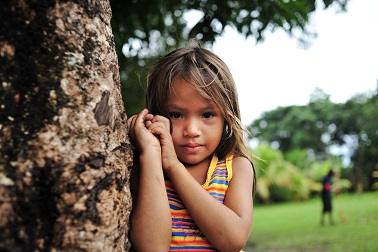The psychological impact on children born through sperm donation

The growing accessibility and social acceptance of assisted reproductive technologies, like sperm donation, have allowed many individuals and couples to become parents. However, the long-term psychological impact on children born through these means remains an area of ongoing study and discussion. Here we’re going to aims to delve into some of the psychological aspects affecting these children.
Identity Formation
Identity formation is a complex process for any child, but those born through sperm donation may face unique challenges in this area. The question of genetic lineage can introduce an additional layer to their understanding of self, especially if the sperm donor is anonymous. Some children may become particularly curious about the traits or characteristics they have inherited from their biological father, such as talents, physical attributes, or even medical history. This quest for understanding one’s genetic background can be a critical part of the identity formation process, as it often intersects with broader questions about individuality, belonging, and heritage. It may lead some children to seek contact with their biological parent or half-siblings, a journey that can be both emotionally rewarding and fraught with uncertainty. The age at which children learn about their donor-conceived status, and the manner in which this information is shared, can also have lasting impacts on their sense of identity. Therefore, experts often recommend an open, age-appropriate dialogue that evolves over time to help children integrate this aspect of their identity in a healthy and constructive manner.
Emotional Challenges
One of the key areas of focus when examining the psychological impact on children born through sperm donation is the emotional challenges they may encounter. These can range from a sense of confusion or curiosity about their origins to more complex feelings of isolation or inadequacy. For some, learning about their conception may trigger questions about their ‘authenticity’ or ‘legitimacy’ within their family, especially if they have siblings who are biologically related to both parents. Additionally, children may grapple with the abstract concept of having a biological parent whom they have never met, and who may have been a donor purely for altruistic or financial reasons. The degree to which these challenges affect a child can vary greatly and may be influenced by a multitude of factors, including the age at which they learn about their origins, the manner in which the information is presented, and the overall family dynamics. Given these potential challenges, experts generally recommend an open and honest approach to discussing these issues, ideally starting at an age-appropriate level and continuing the dialogue as the child matures.
Sense of Family
The concept of « family » can carry varied meanings and emotional weight for children born through sperm donation. For many, their family is defined not by genetic connections but by the love, support, and shared experiences that build their daily lives. In such cases, the revelation of their conception method does not significantly impact their sense of family belonging. However, others might experience a shift in their understanding of family ties upon learning about their donor-conceived status. Some may begin to question the depth of their connection to their non-biological parent or wonder about their relationship with extended family members who are not genetically related. This period of questioning can be emotionally challenging but is often a crucial part of forming a nuanced understanding of what family means to them. It’s important for parents to offer a supportive environment where these questions can be explored openly and honestly, thereby reinforcing the idea that family is built on more than just genetics.
Curiosity About Genetic Heritage
Many children born through sperm donation express curiosity about their genetic heritage. This curiosity could manifest as a desire to meet the donor, or it might involve seeking out potential half-siblings. Some studies suggest that this curiosity is a natural part of identity formation and should not be cause for alarm.
Psychological Well-being
The vast majority of studies show that children born through sperm donation are as psychologically healthy as their peers. However, the way parents approach the topic can play a crucial role. Openness and honesty are generally recommended, as any sense of secrecy could negatively impact a child’s psychological well-being.
The Role of Legislation and Societal Views
The legal framework and societal attitudes surrounding sperm donation can have a significant influence on the psychological well-being of children born through this method. For example, in jurisdictions where donor anonymity is preserved, children may face limitations in accessing information about their biological heritage, potentially leading to feelings of frustration or incompleteness. On the other hand, in countries where legislation allows for the identification of donors once the child reaches a certain age, there may be different emotional challenges, such as the complexities of initiating contact with a biological parent. Societal views also play a role; in cultures where assisted reproductive technologies are more accepted, children are likely to face fewer stigmas or questions about their origins. The societal and legislative context can thus shape not only the experiences of donor-conceived children but also the strategies their families use to navigate these unique challenges. Therefore, being aware of these external factors can better equip parents and caregivers to provide the emotional support and resources needed for the child’s psychological well-being.
It’s depends of anyone
While the psychological impact of being born through sperm donation can vary from one individual to another, it is generally accepted that the approach parents take to disclose this information is crucial. Ongoing research continues to explore the long-term effects, but current data suggests that these children are as well-adjusted as their peers when raised in a supportive, open environment.
